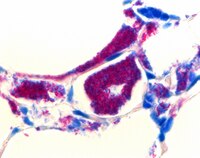100327 Sigma-AldrichHydrochloric acid in ethanol
Recommended Products
Overview
| Replacement Information |
|---|
Products
| Catalog Number | Packaging | Qty/Pack | |
|---|---|---|---|
| 1003271000 | Plastic bottle | 1 l | |
| 1003275000 | Plastic container | 5 l |
| References |
|---|
| Product Information | |
|---|---|
| HS Code | 3824 99 92 |
| Quality Level | MQ400 |
| Applications | |
|---|---|
| Application | for microscopy |
| Biological Information |
|---|
| Physicochemical Information | |
|---|---|
| Density | 0.90 g/cm3 (20 °C) |
| Flash point | 21 °C |
| pH value | 1.0 (H₂O, 20 °C) |
| Dimensions |
|---|
| Materials Information |
|---|
| Toxicological Information |
|---|
| Safety Information | |
|---|---|
| Categories of danger | flammable |
| Product Usage Statements |
|---|
| Storage and Shipping Information | |
|---|---|
| Storage | Store at +2°C to +30°C. |
| Packaging Information |
|---|
| Supplemental Information |
|---|
| Specifications |
|---|
| Global Trade Item Number | |
|---|---|
| Catalog Number | GTIN |
| 1003271000 | 04022536004907 |
| 1003275000 | 04022536004921 |
Documentation
Hydrochloric acid in ethanol SDS
| Title |
|---|
Hydrochloric acid in ethanol Certificates of Analysis
| Product Number | Packaging | Specification | Lot Number |
|---|---|---|---|
| 1003271000 | Plastic bottle | PDF Specification Document | |
| 1003275000 | Plastic container | PDF Specification Document |
User Guides
| Title |
|---|
| User Guide (IFU) - 1.00327 |









